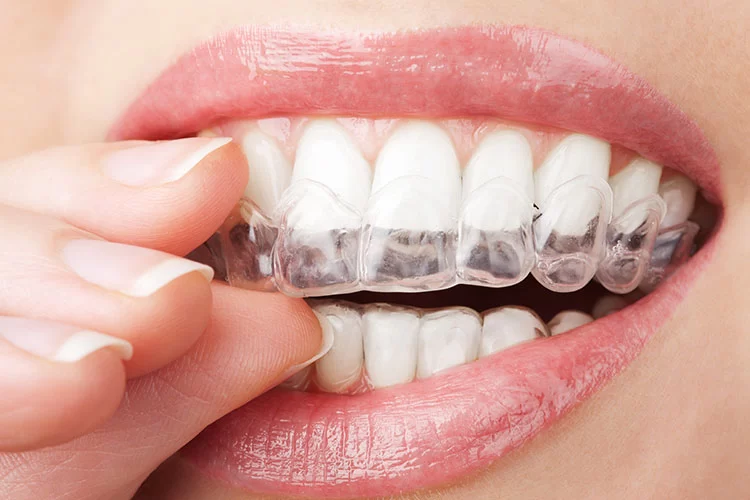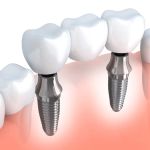
The Benefits of Mouth Guards for Teeth Grinding
Teeth grinding, or bruxism, is a common problem that affects many individuals, often without their knowledge. It can happen during the day, but it is more commonly associated with sleep. Grinding your teeth can lead to a range of dental problems, including tooth wear, jaw pain, headaches, and even more serious conditions if left untreated. One of the most effective solutions to protect your teeth and alleviate the negative effects of grinding is using a mouth guard. In this article, we will explore the many benefits of mouth guards for teeth grinding, why they are so effective, and how they can improve your overall dental health.
1. What Is Teeth Grinding (Bruxism)?
Teeth grinding, also known as bruxism, is the act of clenching or grinding your teeth, typically during sleep. It is often an unconscious behavior and can occur for various reasons, including stress, anxiety, sleep disorders, or even an abnormal bite. In some cases, people may grind their teeth due to an unresolved dental issue or misalignment. The consequences of bruxism can be harmful, including worn-down enamel, fractured teeth, jaw pain, headaches, and even temporomandibular joint (TMJ) disorder.
Bruxism can be a silent and progressive problem. You might not be aware of it happening while you sleep, and its effects can gradually worsen over time. Therefore, finding an effective way to address teeth grinding is crucial to preserving your dental health.
2. How Mouth Guards Help with Teeth Grinding
One of the most commonly recommended treatments for bruxism is using a mouth guard. A mouth guard is a custom-fitted or over-the-counter dental appliance that protects your teeth and alleviates the harmful effects of grinding. Here are the primary ways mouth guards help with teeth grinding:
- Prevention of Tooth Damage: Mouth guards create a barrier between your upper and lower teeth, preventing direct contact and protecting them from the constant pressure of grinding. This helps prevent enamel wear, cracks, and chips.
- Jaw Pain Relief: Teeth grinding can lead to jaw pain and discomfort, particularly around the temporomandibular joint (TMJ). A mouth guard helps to absorb the pressure, reducing strain on the jaw muscles and joints.
- Minimizing Headaches: Teeth grinding can trigger tension headaches due to the tightness of jaw muscles. By preventing grinding, a mouth guard can help reduce the frequency and intensity of headaches.
- Improvement in Sleep Quality: Bruxism often disrupts sleep, both for the individual grinding their teeth and for anyone sharing the bed. By preventing grinding, a mouth guard can improve overall sleep quality, leading to better rest and recovery.
3. Types of Mouth Guards for Teeth Grinding
There are different types of mouth guards available, and the best choice depends on your individual needs. Below are the three most common types of mouth guards used for teeth grinding:
- Custom-Made Mouth Guards: These are the most effective type of mouth guard as they are custom-fitted by a dentist to match your teeth and mouth perfectly. A custom-made mouth guard provides the highest level of comfort, protection, and durability.
- Boil-and-Bite Mouth Guards: These are available at most drugstores and are made of thermoplastic material that softens when heated in hot water. You bite into the softened material, and it molds to your teeth, providing a more personalized fit than stock mouth guards.
- Stock Mouth Guards: These are pre-formed and ready to wear. However, they tend to be bulky and uncomfortable and do not offer as much protection or a good fit as custom or boil-and-bite guards.
4. Advantages of Custom-Made Mouth Guards for Bruxism
While there are several types of mouth guards available, custom-made guards have several advantages that make them the best option for most people. Here are some of the key benefits of choosing a custom-made mouth guard:
- Optimal Comfort: Custom-made mouth guards are created specifically for your mouth, ensuring they fit comfortably and securely. This eliminates discomfort caused by poorly fitting guards and reduces the chances of irritation or pressure sores.
- Durability: Custom mouth guards are made from high-quality materials that can withstand the pressure of teeth grinding, making them more durable than over-the-counter alternatives. This means they provide long-term protection.
- Better Protection: With a custom guard, you get the best protection for your teeth, jaw, and TMJ. The guard evenly distributes the pressure of grinding, reducing the risk of tooth damage, jaw strain, and muscle tension.
- More Effective: A custom fit ensures that the guard stays in place throughout the night, offering continuous protection. It also eliminates the bulky feeling often associated with store-bought mouth guards.
5. How to Care for Your Mouth Guard
To ensure your mouth guard remains effective and lasts as long as possible, proper care is essential. Here are some tips for maintaining your mouth guard:
- Clean Regularly: After each use, rinse your mouth guard with warm water and clean it with a soft toothbrush. You can also use a non-alcoholic mouthwash to sanitize it.
- Store Properly: When not in use, store your mouth guard in its case to prevent it from getting damaged or contaminated. Avoid leaving it in direct sunlight or extreme temperatures.
- Inspect for Wear: Regularly check your mouth guard for signs of wear and tear, such as cracks, tears, or thinning. If it shows significant signs of damage, replace it to maintain proper protection.
6. Additional Tips for Managing Teeth Grinding
While a mouth guard is an excellent solution for managing teeth grinding, there are other steps you can take to reduce the frequency of bruxism and improve your overall dental health:
- Manage Stress: Since stress is a leading cause of teeth grinding, finding ways to manage stress can help reduce the occurrence of bruxism. Consider relaxation techniques such as yoga, meditation, or deep breathing exercises.
- Avoid Stimulants: Limiting or avoiding caffeine and alcohol, especially in the evening, can help reduce teeth grinding, as these substances can increase muscle tension and disrupt sleep.
- Regular Dental Check-Ups: Regular visits to your dentist can help identify bruxism early and allow you to take proactive steps in protecting your teeth and jaw.
7. Conclusion: Why Mouth Guards Are Essential for Teeth Grinding
Teeth grinding can cause serious dental issues, but with the right tools and techniques, you can protect your teeth and alleviate the pain associated with bruxism. A mouth guard is one of the most effective and affordable solutions for preventing tooth damage, relieving jaw tension, and improving sleep quality. Whether you choose a custom-made mouth guard or a store-bought option, incorporating a mouth guard into your nightly routine can provide significant benefits for your dental health.
If you’re suffering from teeth grinding, don’t wait for the damage to worsen. Speak with your dentist about getting a mouth guard and explore the range of options that can work best for your needs. At Dentistry Toothtruth, we offer top-quality products and services to help you protect your smile and improve your overall dental well-being.
SEO Title: The Benefits of Mouth Guards for Teeth GrindingSEO Keywords: mouth guards for teeth grinding, bruxism treatment, benefits of mouth guards, prevent teeth grinding, dental care for bruxismSEO Description: Learn about the benefits of mouth guards for teeth grinding, how they protect your teeth, alleviate jaw pain, and improve sleep quality. Get expert recommendations and solutions for bruxism.






 Perry L Jeffries DDS and Associates PA - Raleigh2.0 (53 review)
Perry L Jeffries DDS and Associates PA - Raleigh2.0 (53 review) Almond Dental Maple Grove4.0 (413 review)
Almond Dental Maple Grove4.0 (413 review) Waterford Dental Health4.0 (1118 review)
Waterford Dental Health4.0 (1118 review) Bismarck Advanced Dental and Implants4.0 (657 review)
Bismarck Advanced Dental and Implants4.0 (657 review) Chalet Dental Care5.0 (739 review)
Chalet Dental Care5.0 (739 review) Straumann USA LLC3.0 (10 review)
Straumann USA LLC3.0 (10 review) The Importance of Oral Health Education During Pregnancy for a Healthy Pregnancy
The Importance of Oral Health Education During Pregnancy for a Healthy Pregnancy Best Tips for Brushing Your Teeth Properly for Healthy Gums: Essential Techniques for Oral Health
Best Tips for Brushing Your Teeth Properly for Healthy Gums: Essential Techniques for Oral Health Why Skipping Dental Checkups Can Lead to Bigger Oral Health Problems
Why Skipping Dental Checkups Can Lead to Bigger Oral Health Problems Advantages of Porcelain Dental Restorations
Advantages of Porcelain Dental Restorations How Can Diabetes Cause Tooth and Gum Problems? Preventing and Managing Oral Health Issues
How Can Diabetes Cause Tooth and Gum Problems? Preventing and Managing Oral Health Issues Healthy Habits for Promoting Good Oral Health and Hygiene: Tips for a Healthy Smile
Healthy Habits for Promoting Good Oral Health and Hygiene: Tips for a Healthy Smile